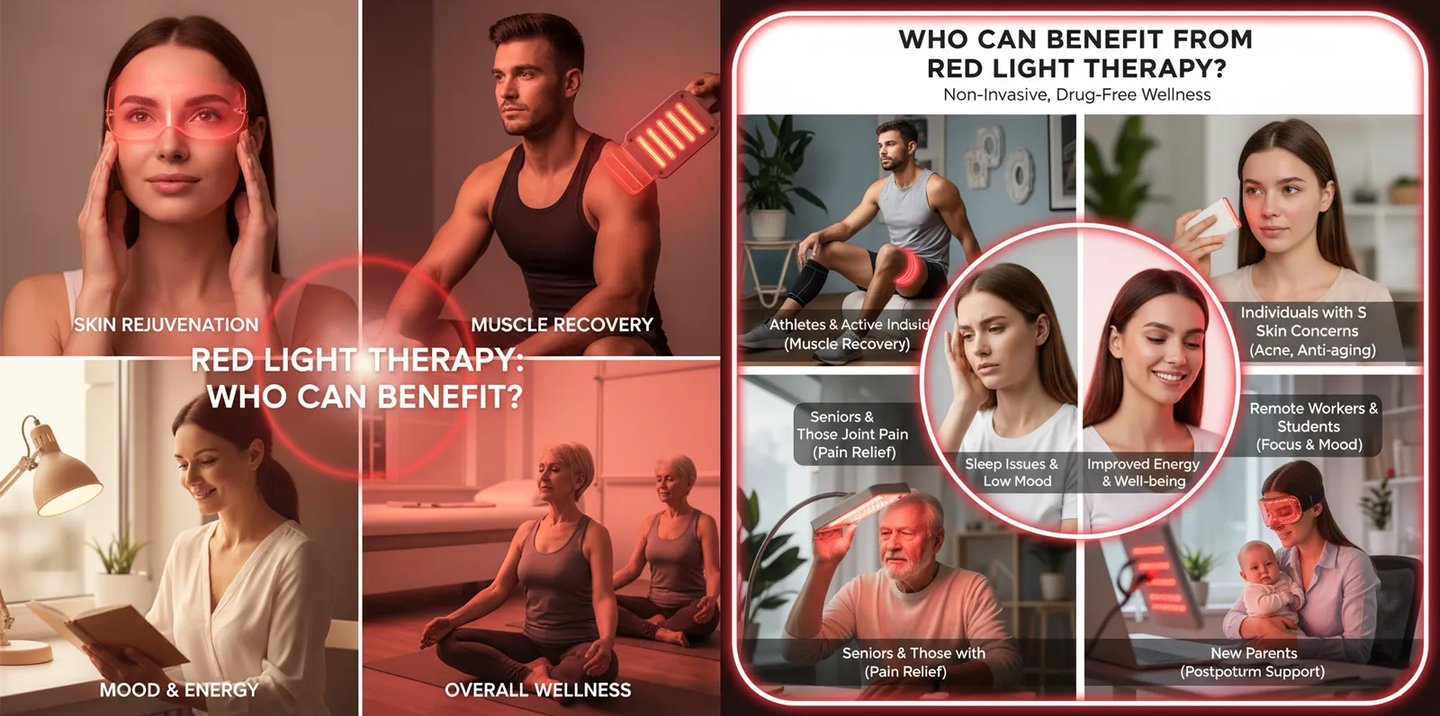Who Can Benefit from Light Therapy?
Light Therapy, a non-invasive and drug-free health solution, has become increasingly popular in medical treatment, rehabilitation, beauty, and daily wellness. By using specific wavelengths of light, it helps regulate circadian rhythms, improve mood, promote recovery, and enhance skincare. But who exactly can benefit from light therapy?
YEEQO
10/1/20251 min read


1. People with Mood and Sleep Disorders
Light therapy is widely used to improve Seasonal Affective Disorder (SAD), depression, and insomnia.
Specific wavelengths of light mimic natural sunlight, helping regulate melatonin and serotonin.
People who work night shifts or suffer from jet lag may also benefit significantly.
2. Athletes and People with Pain Issues
Red and near-infrared light are commonly applied in sports injury recovery, arthritis, and chronic pain management.
They stimulate cellular repair and improve blood circulation.
They help reduce inflammation and muscle tension.
3. Skincare and Beauty Enthusiasts
Light therapy is also widely adopted in skincare:
Red light: Stimulates collagen production, reducing fine lines and wrinkles.
Blue light: Targets acne-causing bacteria, improving acne.
Combination light: Enhances overall skin health.
4. Elderly Population
As people age, sleep disturbances, weakened immunity, and joint pain become common. Light therapy can:
Regulate circadian rhythms and improve sleep.
Support bone and muscle health.
Enhance overall quality of life.
5. People with Limited Sunlight Exposure
Urban workers, remote employees, and those who spend long hours indoors often lack sufficient sunlight. Light therapy can:
Compensate for sunlight deficiency.
Help maintain mood stability and immune balance.
Light therapy is suitable for a wide range of people, especially those with mood disorders, sleep problems, sports injuries, chronic pain, skincare needs, or limited sunlight exposure. It is a safe, scientific, and non-invasive solution, though consulting a professional before use is recommended.
